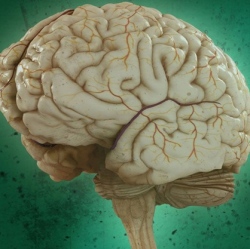
Exposure to high levels of "male" hormones in the womb increases the chance of a baby boy developing autism, according to researchers. The University of Cambridge researchers say their findings from more than 300 boys help unravel the causes of autism – a condition that affects both sexes but is far more common in males. But they say it does not mean a prenatal test for autism is near.
Nor will it necessarily be possible to stop autism by blocking the hormones. The hormones in question – testosterone and three other steroid hormones – were important for foetal development, which meant it could be too risky to block them, they told the journal Molecular Psychiatry.
But the findings did pinpoint an important window in foetal development when autism might be triggered, they said. The study authors, Dr Michael Lombardo and Prof Simon Baron-Cohen, looked at stored samples of amniotic fluid – the liquid that surrounds a baby while in the womb – to see if there was anything about this early environment that might explain autism risk.
They found that for 128 boys who later went on to develop autism, levels of steroid hormone in the amniotic fluid that had bathed them as a baby in the womb were, on average, particularly high. In comparison, far lower levels of steroid hormone were detected in the corresponding amniotic fluid of a control group of 217 boys without autism.
